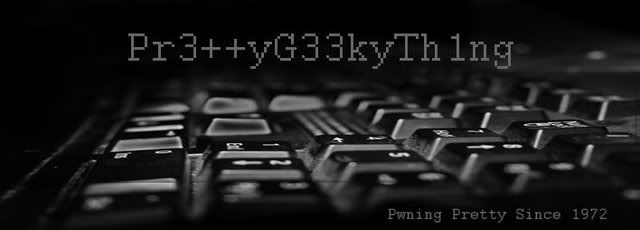 As I've mentioned several times, I don't have any patience for reading books which would be considered, in literary circles, "good".
As I've mentioned several times, I don't have any patience for reading books which would be considered, in literary circles, "good".I read junk. Popcorn fiction. Dragons, magic, laser swords, ninjas, killer robots, etc.
I wouldn't classify most of it as bad, really. The dramatic elements are generally all the same, the characters are alike enough to sometimes confuse from book to book and author to author and the plot twists are telegraphed from the opening lines or (in a style which makes me shudder and yet fills me with comfortable warmth) just a few lines before the twist itself as though the author forgot until that very moment.
It's all pulp. It was written to sell books, not stand as an example of art for all time.
While not written during the initial glut of books published during the Great Depression with the apparent purpose of amusing people in bread lines, Death in Delhi by Gary Gygax is a tribute to them. Of course, it is impossible to know whether the tribute is intentional.
It does lack the weird imperialist leanings of Burroughs and Howard.
In the Tarzan or John Carter Mars books, it can pretty much be assumed that the white guy just does things better than all the uncivilized people around him who need a good conquering. The Conan and Bran Mak Morn stories were almost a rebellion against western european entitlement stories -- The problem being that they are no less archaic in their perceptions on racial equality. I can forgive either since that is just an artifact of the time they were written. Huck Finn and Tom Sawyer can be pretty offensive, too. The fact that Twain's books are considered classics doesn't give them any more of a pass than the pulp writers get. It must be noted that his Connecticut Yankee in King Arthur's Court was pretty close to pulp fantasy itself.
The protagonist in Death in Delhi is an Ægyptian wizard/priest/private investigator. He is capable of solving most crimes through his use of magic but he mostly seems to just observe things better than most. This is the same technique Sherlock Holmes used. The characters even share the same distance from the reader. Holmes works on an almost supernatural level. Watson, masquerading as the sidekick and narrator, primarily exists to bridge that distance.
In Death in Delhi, the sidekick more blatantly does the same, though she also kicks a lot of ass.
The bad guys are cliched Thuggee assassins. I'm convinced this is deliberately cartoony like Indiana Jones and the Temple of Doom or The Stranglers of Bombay (1960 - In Strangloscope!). If he were going for historical accuracy, they would have been a lot scarier (since the cult of Kali was reported to have killed over 20,000 people at the height of British occupation) or non-existant (since a lot of current research indicates they never existed and were a fabrication of the Imperialist movement).
This is not the first Gary Gygax novel I've read. I actually started with his Greyhawk series sometime before middle school. To be honest, it isn't literature. It also doesn't ever pretend to be and I can appreciate that. This book, and all I've read by him, are just supposed to be fun.
Just like Dungeons and Dragons (which Gygax helped to create), this isn't a history lesson. This is fantasy mixed with modern conveniences slightly skewed by magic and pop culture references.
During his time working in various game companies, Gygax became famous among the gaming community for his not-interviews. He frequently picked up job candidates and drove them to lunch. During the drive, he'd ask off-the-resume questions about jobs outside the industry, books and movies recently enjoyed or hated and activities unrelated to gaming.
The opinion is that he didn't want game designers or editors working for him who took it too seriously and weren't well-rounded enough to make things fun.
James Lowder said thirty minutes of his not-interview centered around his days laying asphalt.
As they finally arrived at the restaurant for lunch, Gygax told him, "You do what you have to do to feed your family and then, if you're lucky, you get to do what you love for the rest of your life."
It is obvious, in reading this novel, that Gygax had a lot of love for what he did. Skill? Maybe. Love? Most definitely.
I would rather read something someone enjoyed writing than just about anything else.







No comments:
Post a Comment